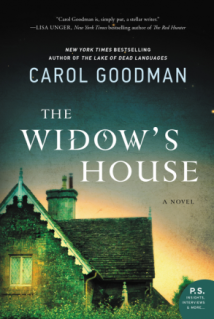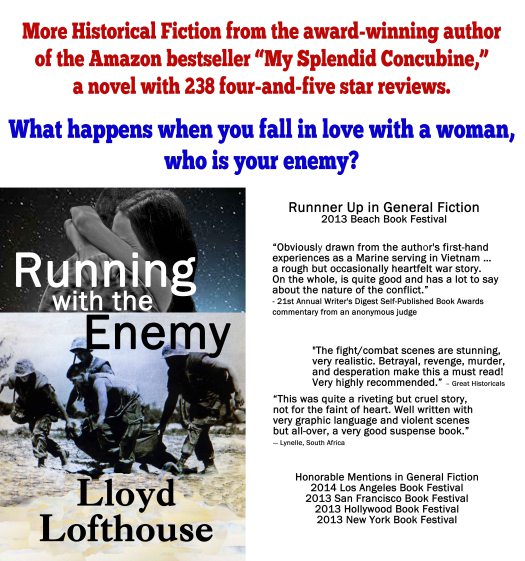
The Widow’s House is Carol Goodman’s 12th novel. I’ve read all except for her three YA novels (Blythewood series) and the literary fiction novel that precedes this one, River Road. I’ve reviewed most of them for the blog, and if you click this link, you can read those reviews. Many of Goodman’s novels have a literary theme or connection. In this novel the main characters are writers/novelists, one of whom is a former composition professor at the local college while the other two are his former students. This is a creepy, atmospheric, suspenseful mystery. Goodman’s story sucks you in from the beginning right through to the tense, pulse pounding ending. It’s a page turner that you won’t want to put down.
Jess Martin is a famous writer, whose follow up to his stunning debut is about a decade overdue. Clare is his wife, an equally talented writer, who has given up writing in order to take a steady job as a copy editor for a publisher. The Martins are struggling financially and maritally because of Jess’s inability to deliver a second novel on a reasonable deadline. They’ve blown through the advance, and thanks to Clare’s steady job and sacrifice of her own writing career, they’ve been able to stay afloat, and Jess has been able to draw out drafting (and trashing and drafting again) another novel. The couple returns to Concord, their old college town and Clare’s hometown, and take a job on the estate of their former writing professor, Alden Montague, as caretakers of the manor and estate. For the Martins the move is a second chance and a fresh start upon which they’ve pinned all hopes for their future. They hope the new atmosphere will jump start the composition of Jess’s second novel, and they hope (or at least Clare hopes) it will rejuvenate and heal their rapidly unraveling marriage. Clare also hopes to return to her own writing after having allowed Jess’s initial massive success as a novelist to subsume her own writing ambitions. In order to support Jess (who seems ungrateful if not downright disdainful of the sacrifice) in his writing career, Clare took a 9-to-5 job while Jess exploited the sacrifice by drawing out the length of time in writing a follow up, frittering away the advance money on extravagant purchases, and snobbishly regarding jobs such as his wife’s that has enabled the luxury of leisurely writing a follow up novel. From the day they move in, Clare is haunted. In the dark and misty nights she sees the ghostly figure of a woman standing on the weir that cuts across the estate and visions of events straight out of the past. Though the estate’s isolated, mysterious atmosphere inspires the Martins to return to writing, rather than healing their marriage, it drives a wedge between them. As their residence at River House draws out into months, the house, its atmosphere, and the hauntedness of the environment take a toll on its inhabitants both physically and mentally before it starts claiming victims again. Drawn into the history of her hometown, Clare begins researching the apple blossom queen crowned in 1930 by the town, the Montague family history as well as her own history as an adopted child. When she decides to obtain the unsealed records of her birth and subsequent adoption, she discovers an unexpected connection to the Montagues that rocks her world and makes her re-think just what led her and Jess to make the move back to Concord. What if the hauntings that Clare sees have a more physical than metaphysical provenance? What if their return to Concord was cunningly engineered by the person she trusts most? What if their entire marriage has been based upon deception, gaslighting, and manipulation? In the end Clare is betrayed by the two most important men in her life. A Rant in Four Parts (you know that’s why you come here): Part I: Jess is self-absorbed, self-centered, arrogant, pretentious, and a snob. He lies. He gaslights and manipulates Clare during arguments. He won’t tell anyone, not even his wife, what he’s writing about. He doesn’t extend the same respect to his wife’s work. And I don’t trust him because I’ve got his number from chapter one even if Clare doesn’t until it’s almost too late. Part II: It is not okay how Jess throws Clare’s mental health issues and supposed paranoia (which seems to me a manufactured ‘diagnosis’ by Jess or a manipulated state of mind that Jess has actively encouraged in Clare) back in her face as subterfuge for Clare’s distrust of his truthfulness regarding his fidelity. Gaslighting much? This appears to be a well-established dynamic in their marriage. Clare’s alleged ‘history of mental health issues’ appear seemingly out of nowhere in the back half of the book just when it suits Jess. Part III: When, mid-session with the psychologist recommended by the woman who turns out to her husband’s side piece, Clare discovers that her husband (or his side piece, who really knows) forged her signature on a form to release her confidential mental health records from institutionalizations likely engineered by Jess, that’s when I would do a hard peace out of this marriage. Clare, get yourself a good divorce attorney. Do not return to the River House estate. It’s time for a (long overdue) divorce. Part IV: When you figure out your lying, cheating, gaslighting husband and his side piece are at best plotting your involuntary commitment on a psychiatric hold or at worst plotting your imminent demise to get their greedy, grubby mitts on your newly discovered bio-father’s fortune, it’s time to high tail it out of dodge. Do not pass go, Clare. Do not go home to the isolated estate and your scheming husband. Get. Out. –Reviewed by Ms. Angie Advertisements Share this:




